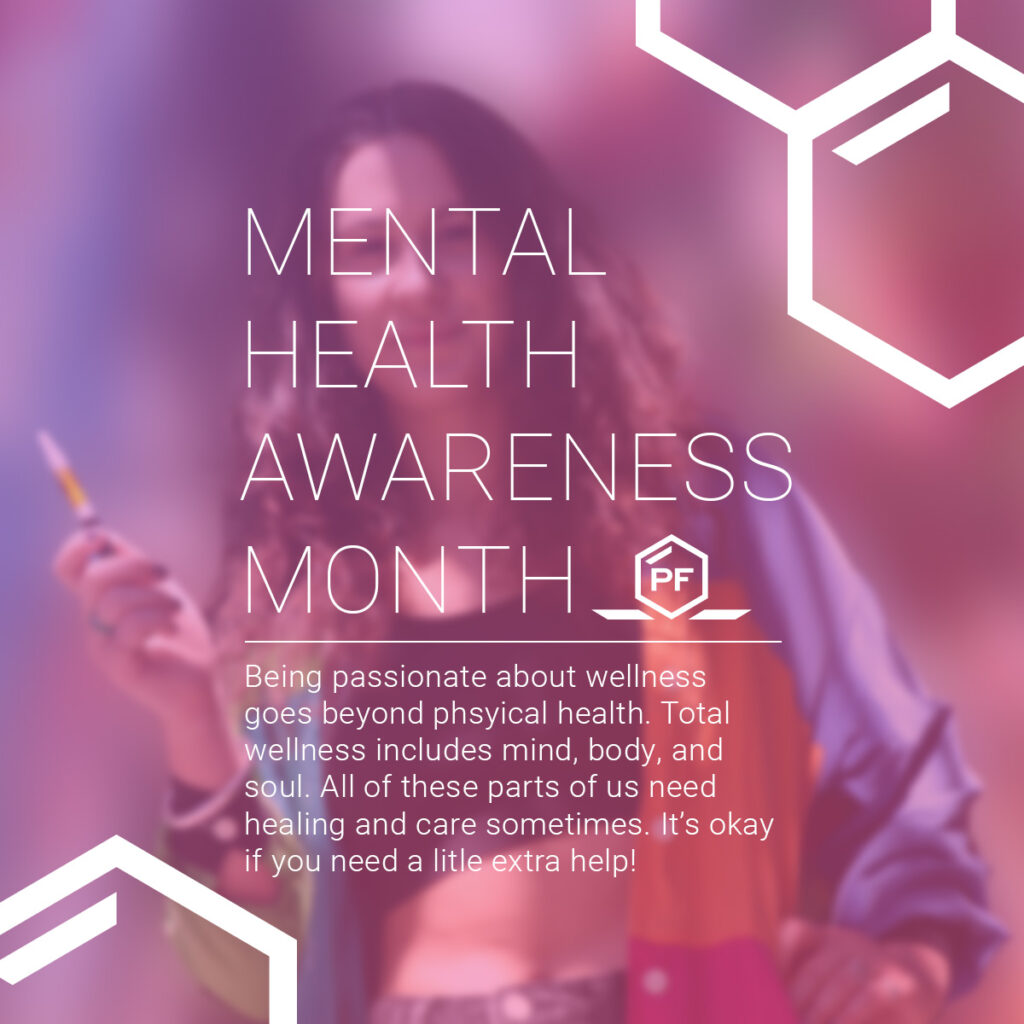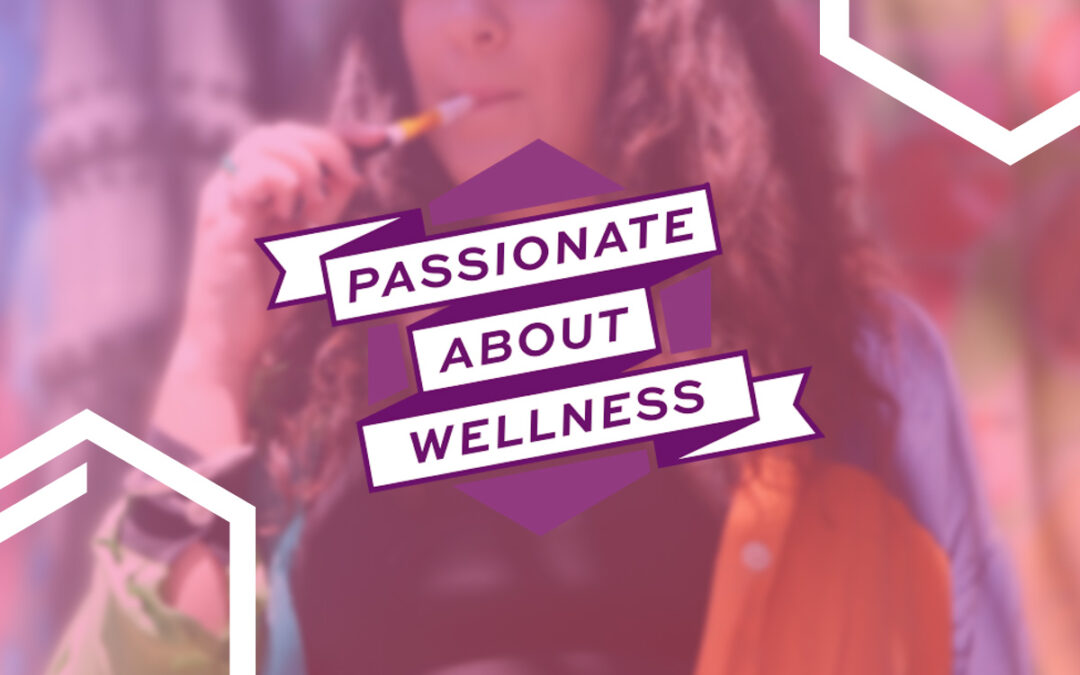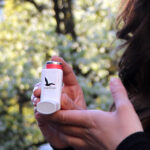With May being Mental Health Awareness month, we thought we’d take a deep dive into our quest to understand the human body’s intricate systems. Science continually uncovers remarkable secrets about them as restrictions about research become more relaxed. One such revelation is the existence of self-made cannabinoids within our bodies, potentially holding the key to treating stress-related disorders like depression and PTSD.
We are already familiar with the endocannabinoid system, a complex network of cannabinoid receptors that interact with compounds like THC and CBD found in cannabis. This system plays a vital role in regulating various bodily functions. However, until recently, the brain activity patterns and neural circuits influenced by these cannabinoids remained largely mysterious.

Brain’s Response to Stress: Self-Made Cannabinoids at Work
A recent study conducted by Northwestern Medicine, published in the journal Cell Reports, has unveiled a remarkable finding. The brain’s emotional hub, known as the amygdala, has the capacity to release its own cannabinoid molecules in response to stress. These molecules act as a natural defense mechanism, reducing the stress signals sent by the hippocampus, which controls memory and emotions.
This discovery reinforces the idea that our brains possess innate cannabinoid molecules crucial for our body’s innate coping response to stress. It also suggests that deficiencies in this endogenous cannabinoid signaling system could increase susceptibility to stress-related psychiatric disorders like depression and post-traumatic stress disorder (PTSD).
The Link Between Cannabinoids and Mental Health
To further validate their findings, scientists removed the target of these self-made cannabinoids, the cannabinoid receptor type 1. This led to worsened stress coping abilities and motivational deficits in the mice. Additionally, mice exhibited more passive and immobile responses to stress and a reduced preference for sweetened sucrose water after stress exposure.
This groundbreaking research holds immense potential for treating stress-related disorders. Dr. Sachin Patel and Lizzie Gilman, Professor of Psychiatry and Behavioral Sciences at Northwestern Medicine, emphasize the significance of understanding how the brain adapts to stress at the molecular, cellular, and circuit levels.
The endocannabinoid system emerges as a promising candidate for drug development in stress-related psychiatric disorders. This intricate signaling network, comprising endocannabinoids, enzymes, and cannabinoid receptors, plays a vital role in regulating various biological functions.
CBD & Mental Health: Suggested Effects
More than a dozen studies have been done on lab animals over the past 3 decades that showed that depending on the dose, CBD could reduce behavior similar to anxiety in people. A handful of studies have been done with people that had similar results. Anxiety and depression are often treated using the same drugs, showing they may be influenced by the same brain processes. So it makes sense that if CBD works for anxiety, it might also work for depression. But there have been even fewer studies focusing on depression specifically. Almost 2 dozen animal studies found CBD can have an antidepressant effect.
Studies on CBD & Mental Health
- A study published in 2019 showed CBD worked better than a placebo for teenagers with social anxiety.
- Young people whose regular anxiety medicine wasn’t working well showed improvement after adding CBD in a study published in 2022. The study also suggested significant improvement in depression symptoms.
- Results from the first phase of an ongoing trial using CBD and other cannabis compounds published in 2022 found the medication could ease symptoms over 4 weeks.
- A study of people with cancer and chronic pain published in 2012 found an improvement in symptoms of depression. The drug tested contained CBD and THC.
- Two studies published in 2018 found CBD reversed depression symptoms brought on by marijuana use.
Also: The Drug Enforcement Administration changed its rules about CBD in 2015, making it easier to use it for research. More than a dozen studies are going on now or are being set up to test the effect of CBD on anxiety. Some involve people diagnosed with anxiety disorders. Others are looking at anxiety in people with cancer or other diseases.
THCV & Its Suggested Effects for Mental Health
A lesser-known cannabinoid, THCV, appears to have more energizing effects without the fatigue and “munchies” associated with marijuana’s more prominent delta-9 THC compound, according to a new double-blind clinical study.
On Tuesday, the cannabis genetics company Phylos and marijuana research firm People Science announced the results of the study they conducted, which demonstrated that a THCV product “significantly increased energy, activity, motivation and well-being compared to placebo.”
The cannabinoid, which was previously coined “diet weed” due to its apparent lack of appetite-inducing effects, is one of numerous cannabis constituents that have emerged on the market.
In this latest Institutional Review Board-approved study, researchers gave 78 participants either unmedicated placebo gummies, delta-9 THC-only gummies or gummies infused with Phylos’s “Get Sh!t Done” THCV-dominant plant.
They found that 20 percent of participants who received the THCV gummies reported feeling more “energized” compared to the placebo, 40 percent more said they enjoyed daily activities after taking the novel cannabinoid.
While 50 percent of those who took the standard THC-only gummy reported increased hunger, that effect was not statistically significant in the THCV group. Also, the THC-only cohort was three times as likely to report fatigue compared to those who received THCV.
Both the THC-only and THCV gummies “increased activity, exercise performance, motivation, and well-being compared to placebo,” Phylos said.
CBN: Sleep & Mental Health
ome research indicates CBN is non-psychoactive. Other research says CBN has very mild psychoactive effects. CBN appears to have potentially powerful sedative effects (more on that in a moment) which might explain at least in part the questions about its psychoactive properties.
How does CBN work in the body?
Cannabinoids exert a wide range of effects on the human body and mind. One way is through interaction with our own endocannabinoid system. This system is involved in regulating a range of our body’s physiological functioning and responses, including mood, pain perception, appetite, and cognitive functions. Cannabinoids also affect the activity of our hormones and neurotransmitters, and influence cell activity throughout the body in different ways.
CBN interacts with the body’s endocannabinoid system, and it can affect the function of many hormones and neurotransmitters, which in turn influence mood, energy, cognition and focus, appetite, immune function, and pain.
Chemically similar to CBD, CBN has several of the same effects in the body, including relieving pain, reducing inflammation, and improving sleep.
Potential sleep and health benefits of CBN
To date, the research into the therapeutic benefits of CBN is very preliminary. But it’s starting to heat up, as interest in the health benefits of cannabinoids surges, and the popularity of CBD continues to grow. Let’s take a look at the areas of health and disease treatment and prevention where initial scientific research suggests CBN may make a difference.
CBN is best known for its potential to be a powerful sedative. Research in mice has shown that CBN can prolong sleep time. Some research indicates CBN’s sedative effects are amplified when combined with THC. But there is, at this point, a lack of scientific research into the sleep-inducing properties of CBN. But beyond sleep, CBN has the potential to wear many other hats.
Research also suggests that CBN may be a pain reliever, antibiotic, anti-inflammatory, a cancer-fighter, and an anti-convulsant. Its possible healing properties also suggest it could aid with bone growth and glaucoma therapy.
Some CBN supplement products are available now, but this cannabinoid has yet to show up widely in supplement forms. There’s a lot more research to be done to understand how CBN affects the body, and ways it might be a safe, effective therapy for sleep problems and other health conditions.

CBG & Mental Health
Research, both in vivo and in vitro, shows several pharmacological effects of CBG, such as a reduction in IOP and dermatological, anti-inflammatory, antioxidant, antitumoral, and anti-anxiety activities, together with appetite-stimulating effects
Like CBD, CBG may help with chronic pain, anxiety and sleep. However, Dr. Sexton reiterates more robust research into how CBG affects the body is necessary to support these potential benefits.
While scientific research on CBG is in preliminary stages, Dr. Smith says he’s especially hopeful about its potential to help with chronic pain because of its proposed anti-inflammatory properties. “CBG may help with overall inflammation, as well as [specific ways to] reduce pain,” he says.
Since CBG can increase appetite, Dr. Smith says it could also be helpful for people undergoing cancer treatments who may be experiencing a loss of appetite. Additionally, researchers are beginning to explore whether CBG may be beneficial in protecting against certain types of cancer, especially when combined with CBD, though concrete human trials are lacking.
Healthy body, healthy brain.
Looking Ahead: Will Minor Cannabinoids Treat Mental Health?
In our quest to understand the remarkable potential of self-made cannabinoids in alleviating stress, it’s essential to recognize the broader spectrum of cannabis products available today. Beyond THC and CBD, the cannabis plant contains a multitude of minor cannabinoids, each with its unique properties.
When combined, these minor cannabinoids can produce what is known as the “entourage effect,” a synergistic interaction that enhances their therapeutic benefits. By exploring this rich diversity of cannabinoids, we can unlock a spectrum of relaxing feelings and therapeutic effects, offering new avenues for personalized stress relief and well-being.
If you’re interested in conducting your own little studies on how different cannabinoids affect you, check out our Passion Flower products and stop by a dispensary near you.






